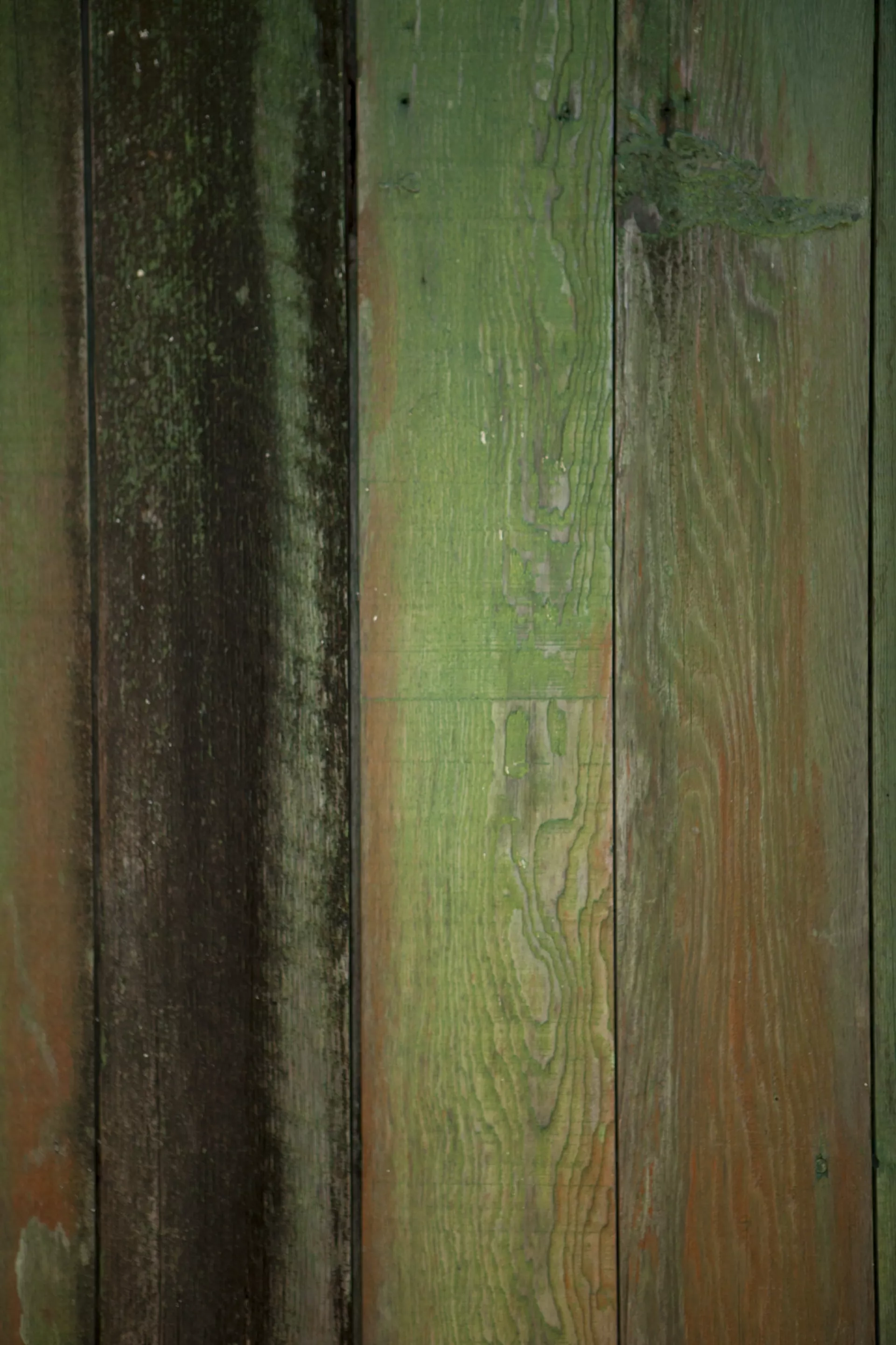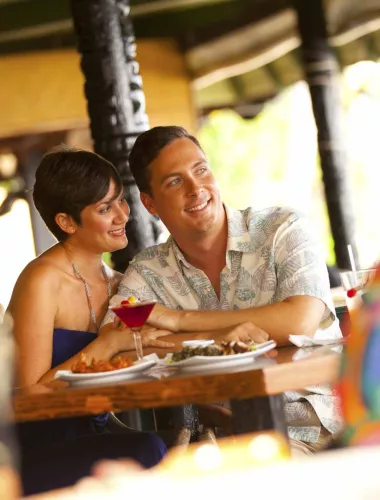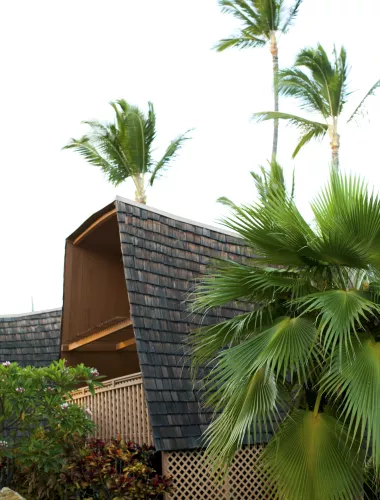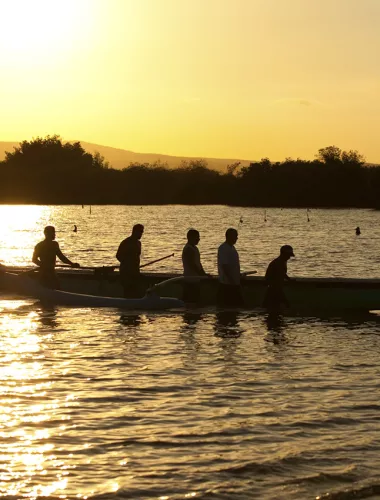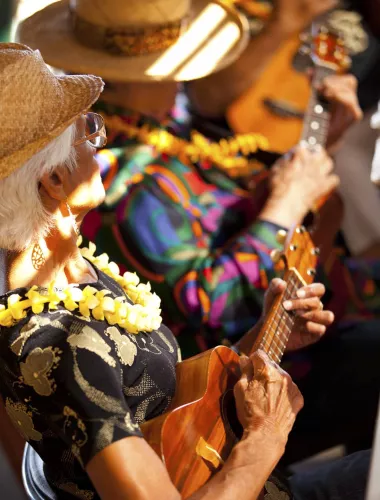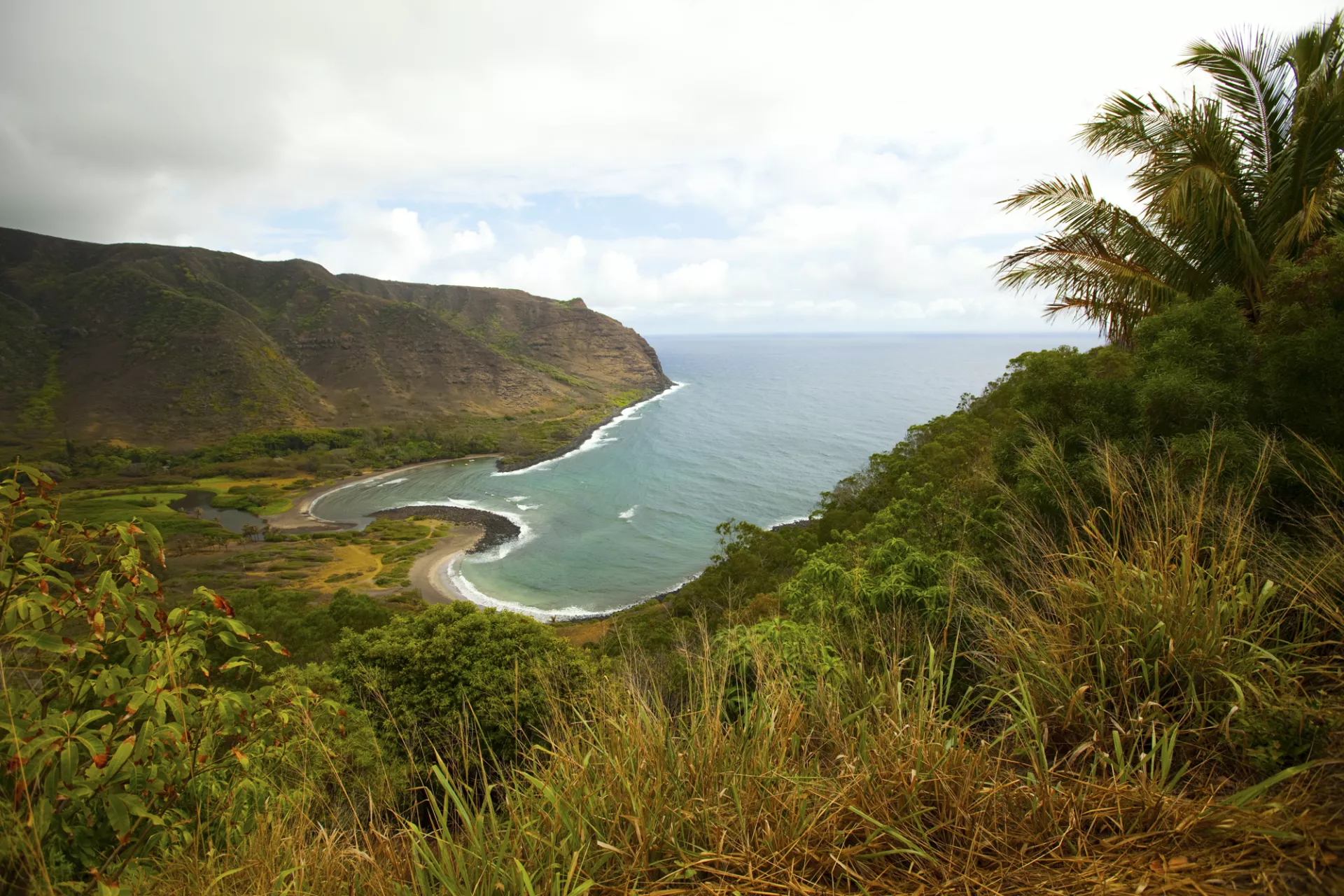
Regions
Hawaiian by Nature
Molokaʻi is Hawaiʻi’s second smallest populated island, only 38 miles long and 10 miles across at its widest point. It’s also less developed, with uninterrupted ocean views and small towns rather than high-rise buildings and big cities. There are three distinct regions of Molokaʻi to explore: Central Molokaʻi, West Molokaʻi and East Molokaʻi.
Regions of Molokaʻi

Explore the 2,000-foot-high cliffs that rise above spectacular seascapes to visit one of the most remote settlements in the Hawaiian Islands.
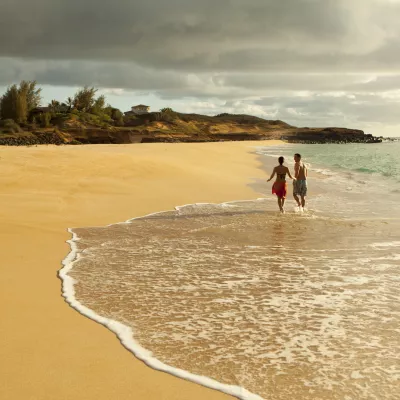
Swim or snorkel in the turquoise waters at Pāpōhaku Beach in Molokaʻi's West End, or explore unique shops and museums in charming Maunaloa.

Take a guided hike through the Kamakou Preserve, a tropical paradise with breathtaking nature.
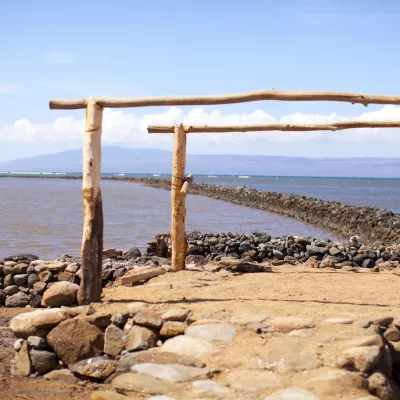
Built from lava rock and coral, these 13th-century fishponds were etched into Molokaʻi’s shoreline to supply local aliʻi (royalty) with sustenance.
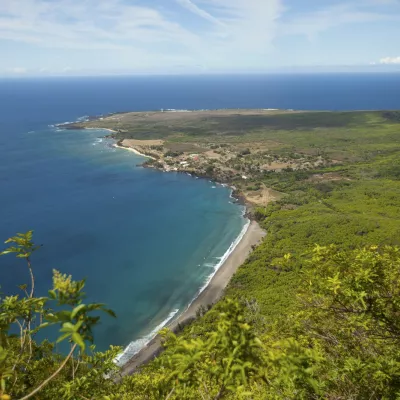
Take a memorable mule ride down the highest sea cliffs in the world to reach the incredibly remote—and formerly forbidden—settlement of Kalaupapa.
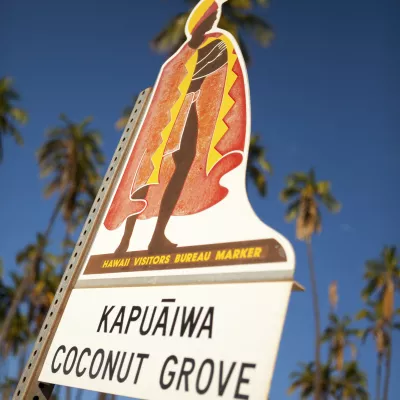
This dense grove of coconut palms, planted during the reign of King Kamehameha V, is one of Molokaʻi’s most recognizable landmarks.
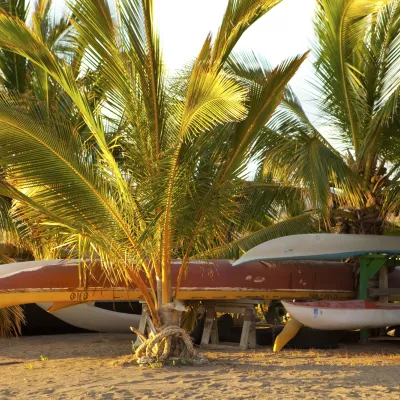
Browse unique local shops and eateries, visit historic landmarks and stroll down Hawaiʻi’s longest pier in Molokaʻi’s quaint main town.
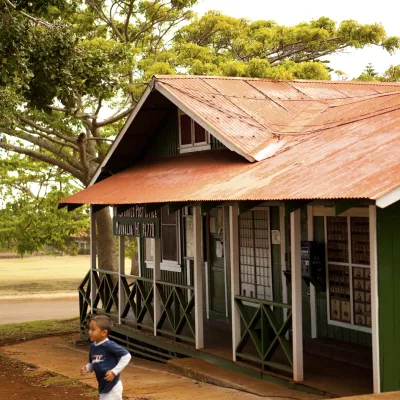
Venture to Maunaloa, a small plantation village set in the hills above the coast, where you’ll find unique shopping and lodging options.
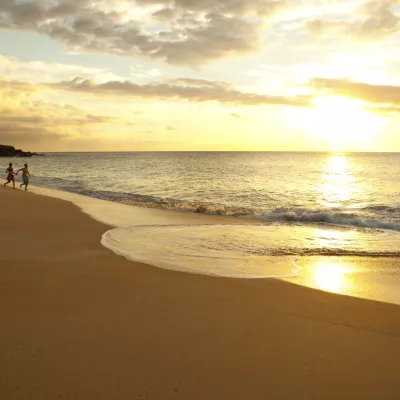
At three miles long, Pāpōhaku Beach is one of the largest white sand beaches in Hawaiʻi, offering distant views of Diamond (Diamond Head) on Oʻahu.
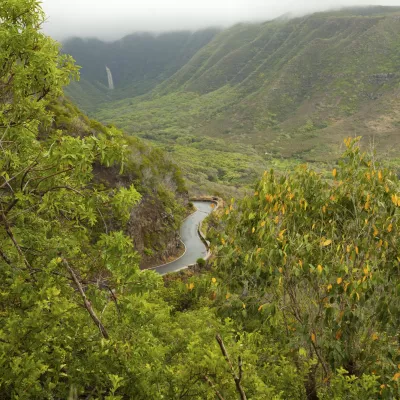
Take a guided hike into this impossibly lush cathedral valley, blessed with beautiful vistas and towering waterfalls that look straight out of the Jurassic Period.

Hike beneath moss-covered branches in Kamakou Preserve, a nature conservancy site that contains rare native Hawaiian birds and plants.

Get Your Free Molokaʻi Travel Planner Guide
